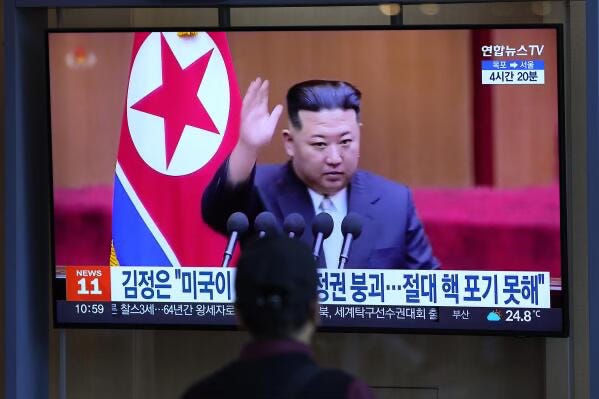Policy Shift
UPDATE: The plenary meeting estimated that the reason was that the essence of “north policy” and “unification policy” pursued by the successive south Korean authorities was “collapse of government in the north” and “unification by absorption” and that the foundation of “unification under the liberal democracy system” had been carried forward without any change by them.
Consistent Principle and Resolute Policy Switchover
The press release of the Ninth Plenary Meeting of the Eighth Central Committee of the Workers’ Party of Korea is drawing the interest of the international community.
The DPRK’s declaration of a resolute policy switchover in its work with south Korea is causing a great sensation in the world.
The recent plenary meeting made a critical analysis of the history of north-south relations, which had witnessed distrust and confrontation only, and put forward the line of making a fundamental switchover in the work with south Korea.
So far the DPRK had done its best for over half a century to achieve national reunification on the principle of independence, peace and great national unity. All the ideas, lines and policies the WPK and the DPRK government put forth for national reunification enjoyed absolute support of the entire nation and sympathy of the world. However, none of them bore a fruit, and the north-south relations witnessed a repeated vicious cycle of contact and its suspension, dialogue and confrontation.
The plenary meeting estimated that the reason was that the essence of “north policy” and “unification policy” pursued by the successive south Korean authorities was “collapse of government in the north” and “unification by absorption” and that the foundation of “unification under the liberal democracy system” had been carried forward without any change by them.
Kim Jong Un said that it was the final conclusion of the WPK that as long as the Republic of Korea defined `the “unification by absorption” and “system unification,” which went clearly against the reunification policy of the DPRK based on the principle of one nation, one state and two systems, as its state policy, national reunification would never be realized.
The DPRK regards that it is a mistake that should no longer be repeated to treat those, who are seeking “collapse of the government in the north” and “unification by absorption,” as the counterpart of reconciliation and reunification.
Proceeding from this, the plenary meeting recognized that the north-south relations were completely fixed as those between the two hostile states, between the two belligerent states, not as those between compatriots or those of a homogeneous nation.
Kim Jong Un declared that the nuclear deterrent of the DPRK would move over to crucial actions without hesitation if the US and south Korea attempted military confrontation at long last.
The analysts are unanimous in saying that consistently maintaining the principle of responding to the US and other enemies and the policy switchover in the work with the enemies is an outcome of the frank recognition of the present reality.
Read more here.




